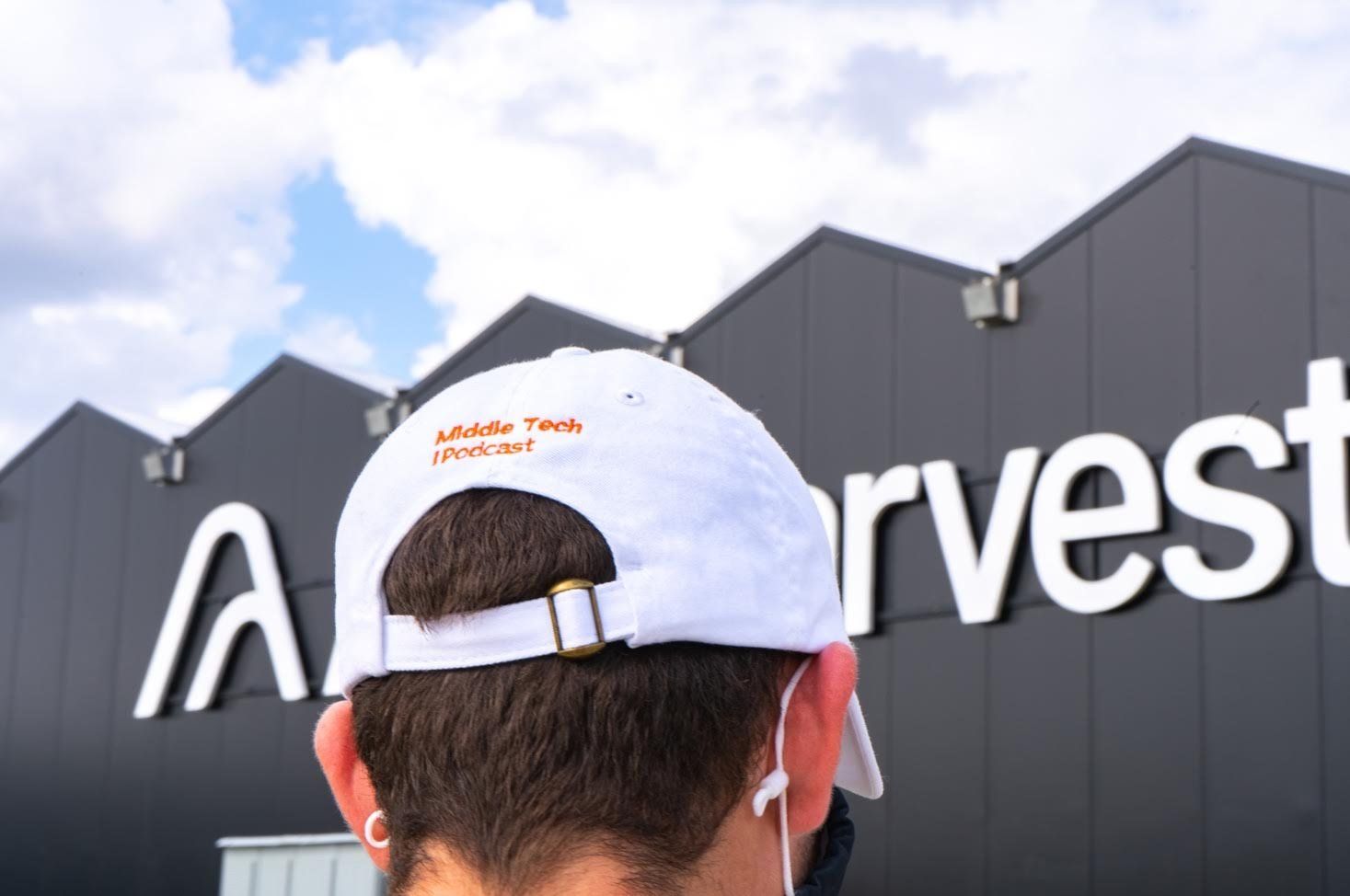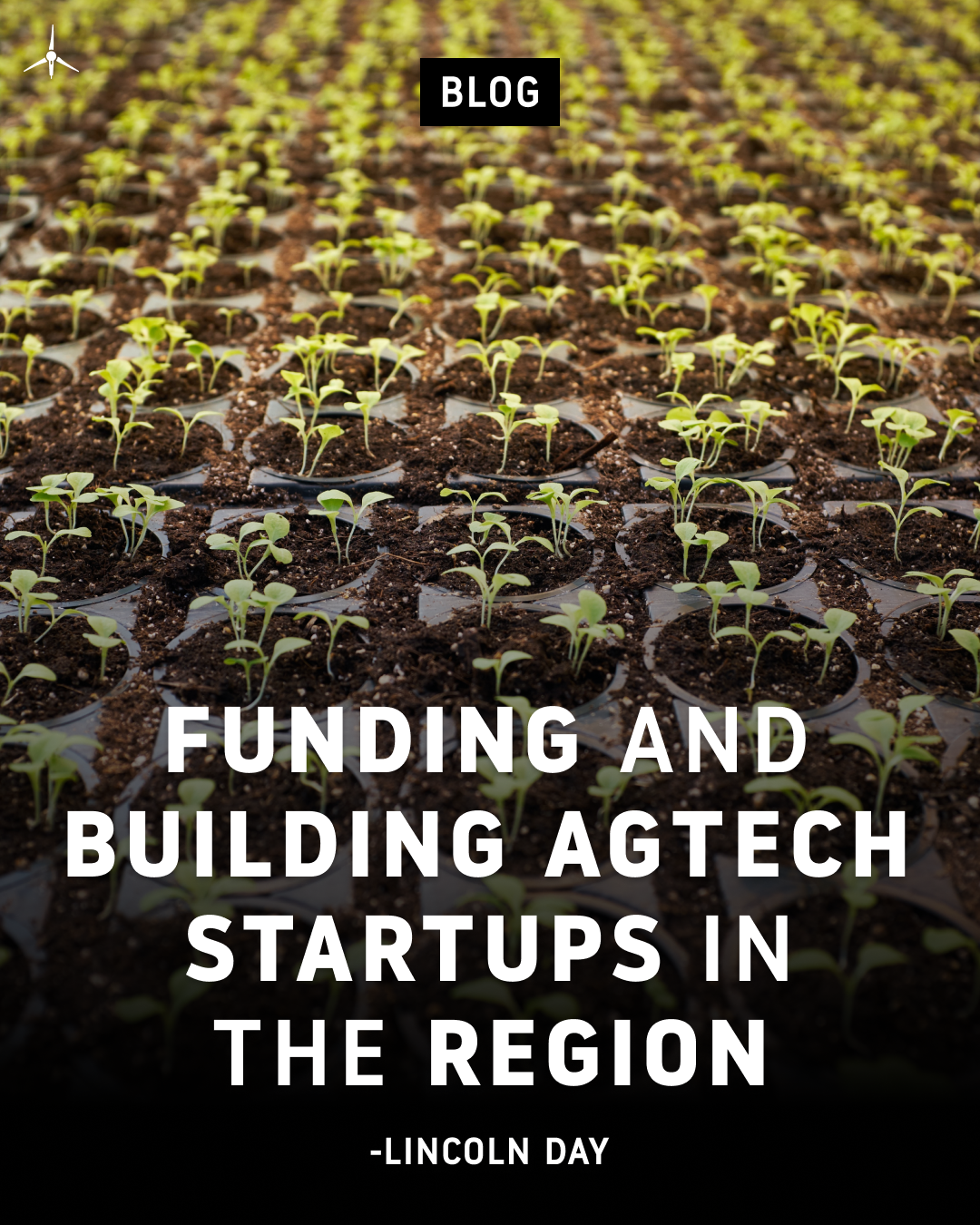Inspect: The Growing Tech Scene in Lexington

The following the transcript from this week's episode of Middle Tech: Inspect.
In this tourism ad for the City of Lexington, we see car after car drive through those famous Kentucky backroads:
“Look horses! I like horses but this is ridiculous!”
It kind of is. It’s true that Lexington, KY is synonymous with thoroughbred horse racing, world class bourbon, and elite college basketball, but many people still equate it almost exclusively with old money and established traditions. However, one industry that runs in the opposite direction of these entrenched norms has begun to emerge throughout the city: technology.
On this episode of Middle Tech we’re switching it up a bit, and exploring the history of the tech scene in Kentucky. I originally wrote this piece for my blog in 2017, and now this updated version is serving as the first in a new series of narrative deep dives into business subjects that impact your life. My name is Nate Antetomaso, and this is Middle Tech: Inspect.
When I worked in Lexington at the experiential marketing startup Fooji, I was lucky enough to be able to participate in multiple panels and speaking events on behalf of the company. One question that was continually asked at these things went along the lines of “what did your friends and family think when you told them you were accepting a job at a startup?” Luckily, my friends and family are extremely supportive so I had little reason to second guess my decision about how I wanted to start my career. It is a valid question, but the fact that we were so consistently asked it in the first place is what stuck with me. I live and I operate for hours each day in the tech and entrepreneurship world and, for better or for worse, it’s become the norm to me. But when I step back it’s clear that the culture, the mentality, and the possibilities that come along with a true tech company are still unknown by many in the Bluegrass. The opportunities that startups provide are generally accepted on the coasts, but generally viewed as insurmountable risks in Kentucky. And that’s understandable. Just like with anything else in this world, tech culture is hard to fully grasp from the outside looking in. But when thinking more about it I realized that many aren’t even looking in in the first place. Technology is here to stay in Lexington and it is already having a very real impact on the city, but many aren’t even aware.
Tech companies have popped up all over following the startup trend that began in the Bay Area years ago, slowly took over both coasts, and is now settling into the Midwest. There’s big players, little players, and supporters all over the industry, and Lexington is no different. The Bluegrass serves as a microcosm for the tech industry as a whole, and parallels can be drawn between our budding local scene and the overall national scene.
Silicon Valley emerged in the Bay Area decades ago for a myriad of factors including entrepreneurial support from Stanford who saw itself as an advocate for the region and also just so happened to have extremely strong STEM graduates. Silicon transistors and semiconductor production began to take over the area which brought venture capital along with it. As technology has improved and popular focuses have shifted from hardware to computer networking, to the internet, and now to software, Silicon Valley has remained at the center of it all.
Lexington has a less storied history in tech, but it still has its own roots in the past. In 1956 IBM came to Lexington to build a 386,000-square foot typewriter plant off New Circle Road and employ 1,800 people. The company did wonders for the growth of the city and as the operation employed more and more people it slowly evolved into laser printing. In 1990 a private equity firm scooped up the division and Lexmark, a company that still employees of 2,000 people locally, was born. Let’s just say their printers had some pretty high-tech features for the time.
With both Silicon Valley and Lexington’s historical factors playing a part in their modern tech scenes, the most obvious parallel between the two is their higher education institutions: Stanford and the University of Kentucky. In addition to being the top employer in the Bluegrass, UK pumps out thousands of graduates each year across 200 majors including those from the College of Engineering which ranks in the Top 100 nationally according to U.S. News & World Report. UK is the defining institution in the region, so it’s no surprise that it has a material impact on the burgeoning industries surrounding it. Additionally, in the same way that venture capital exploded the entrepreneurial possibilities in the Valley, it is now beginning to do the same in the Midwest. Steve Lohr, in an article for the New York Times, states “the idea is that the middle of America amounts to an undervalued asset, rich in markets, new business ideas and budding entrepreneurs. The Midwest, the thinking goes, is not only untapped, but also an antidote to the scalding-hot tech market on the West Coast.” Funds like Rise of the Rest notice this opportunity and are seeking to take advantage of it while providing new possibilities to underserved markets.
More and more venture capitalists are investing in the Midwest and, of course, when seeds are planted things start to grow. The top 50 VC firms in Midwest states represent over 42,000 investments. Chicago is obviously the regional leader but smaller urban hubs like Cleveland, Indianapolis, Cincinnati and others are pulling significant weight. Money is spreading inland for multiple reasons including cheaper labor, affordable operational costs, and the region’s established expertise in manufacturing, agriculture, and healthcare: three industries just beginning to be disrupted by tech.
But Lexington has something unique that is invaluable to the startup community: government support. In 2013 the Lexington-Fayette Urban County Government started the Jobs Fund under Mayor Jim Gray, a $1 million allocation to provide grants and loans to businesses with a priority to fund advanced manufacturing and technology endeavors. Of course businesses that apply to the Jobs Fund have to prove viability and meet certain criteria, but with a system creating relatively easy access to capital it’s clear to see how opportunities began to grow. Mayor Gray’s support of startups and technology went beyond the financial sector when he announced a strategic partnership with MetroNet to lay $100 million worth of fiber optic cables across the entirety of Lexington’s urban service area, making it the nation’s largest “Gigabit City.” Quick and reliable internet is obviously crucial to an up-and-coming tech company, and the affordability granted by a city partnership like this may just be strong enough to entice and attract entrepreneurs looking to do business online. Last August, former mayor Gray spoke at a ceremony commemorating the beginning of gigabit service.
Fast data speeds and accessible capital coupled with Lexington’s low cost of living and unique culture is a winning combo that is sure to keep the local tech sector growing. So what is the state of that sector right now?
While Lexington tech is obviously smaller when compared to bigger cities and still has a way to grow, the very real impact it’s producing on the city is nowhere near negligible. Upstarts like Fooji (a company that works with the biggest brands in the world like Disney, Viacom, and Amazon), Xometry (a company continuing to scale in value while it transforms the machining industry), Truman’s (an eco-friendly soap company taking over consumer’s hearts everywhere) and countless others are employing hundreds of skilled professionals while adolescent powerhouses like Big Ass Fans act as anchors to the community surrounding them.
The tech industry goes beyond established startups, of course, and arguably just as influential as those companies are the support organizations that breed interest in the industry as a whole. Awesome Inc. is an incubator/coworking-space/code-school/media-company/swiss-army-knife that helps grow local talent and accelerate the opportunities available to that talent. Base 110 is a coworking-space complete with conference rooms, a recording studio, and more amenities necessary in a modern office. Other, less physical organizations also exist to spur creation and growth like the Kentucky Innovation Network, LEAP, and UK’s very own Von Allmen Center for Entrepreneurship and Office of Technology Commercialization. These organizations all specialize in creating opportunities for potential and current entrepreneurs in their own unique ways.
With these systems in place it’s clear that Lexington is becoming a warm home for tech within the larger landscape of the Midwest. The potential for innovation and growth is no longer just for those on the coasts, and it’s exciting to see the city’s scene grow as it continues to promote entrepreneurship, technology, and skilled labor which will in turn grow the local economy and redefine the Bluegrass. After all, it’s not just about horses.
Thank you for listening to the first episode of Middle Tech: Inspect. Let us know what you think, we’re open to all feedback as we test out this new format. A special thanks to the providers of our media clips in this episode including VisitLex, LexMark, Rise of the Rest, and Lex TV. Make sure to visit our website at middletechpod.com and follow us on social @middletechpod. We’ll be back next week with a regular episode of the Middle Tech Podcast. See you then.









